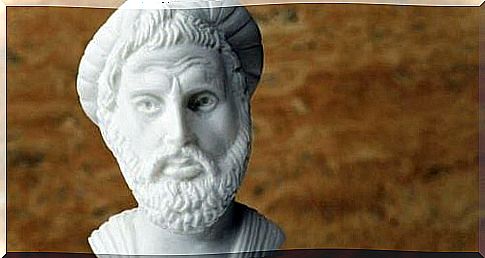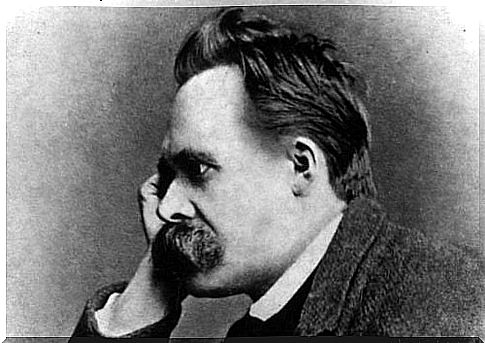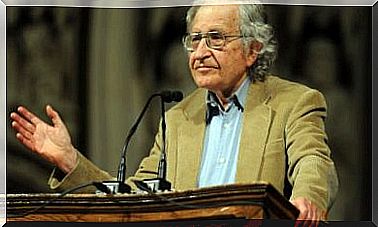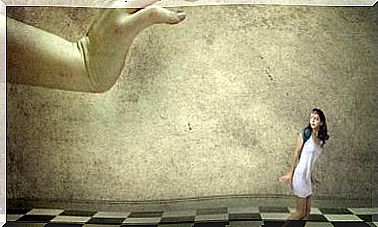Get To Know 7 Fascinating Philosophical Theories

You may remember philosophy as one of the most boring subjects you learned in school. Yet philosophy is a fundamental part of our daily lives. Philosophical theories invite us to think about who we are and where we are going.
It teaches us to think and consider. Philosophy encourages us to constantly question established truths, verify hypotheses, and look for solutions. The importance of philosophy importance is actually so great that the United Nations has declared November 16 as World Day of Philosophy.
Philosophical theories unite movements, schools of thought, beliefs, and even scientific laws. In this article we will highlight some of the most interesting philosophical theories. How many of these theories do you know?
7 fascinating philosophical theories
The Pythagorean Theory
You’ve probably heard of the Pythagorean theorem. It has to do with right triangles. But actually Pythagoreanism was a fundamental and religious movement during the 6th century BC.
Pythagoras of Samos founded this movement. He was considered the first pure mathematician and one of the most important in history. Pythagoras advocated not seeing science and religion as two separate entities. Rather, he regarded them as two inseparable players of the same way of life.
Astrologers, musicians, mathematicians and philosophers were part of Pythagoreanism. The strongest belief of this movement was that all things are essentially numbers. In other words, everything in nature follows numerical rules. So the basis of this theory was mathematics. Yet at the same time it was a deeply mystical theory.
The religious reference symbol of Pythagoreanism was the pentagram, which they called “health”. At the time, they used as a secret sign to recognize each other.

Epicureanism and its co-religionists
Epicurus of Samos founded this philosophical movement in the 4th century BC. His followers, the Epicureans, have continued the movement. The maxim of this theory was the search for happiness through the pursuit of pleasure. They saw both concepts, pleasure and happiness, as the absence of pain and of any kind of suffering.
In order to achieve happiness, they distinguished between three kinds of pleasure that made it possible to acquire ataraxia. The state of peace of mind, the absence of disturbance and the perfect balance between the mind and the body.
From this perspective, Epicurus declared that God does not exist. This was his idea. God is good and mighty yet bad things keep happening to people, even the good people. Why is this?
From this approach he derived two possible logical results. God is not good because he allows these evil events to occur. Or he is not omnipotent because he is unable to prevent them from happening. He claims that in both cases the existence of God has been annulled. But logic isn’t always the best way to approach these things. What do you think about his conclusion?
The Scholastic Theory of Anselm of Canterbury
Scholasticism was not one of the most controversial theories. Yet it is one of the most interesting philosophical theories. That has to do with its heterogeneity. Originally it comes from Greco-Latin, Arab and Jewish movements. It was dominated by medieval thought. The central idea was the subordination of reason to faith and the cooperation between the two.
Some authors have dismissed this theory as too static. They say it only has to do with memorization. This is due to his somewhat traditional teaching methods. But the philosophical aspects are not just a set of rigid theological articles of faith. It is also a joint work of faith and reason. The aim is to understand reality from a human point of view.

René Descartes’ rationalist theory
Cogito ergo sum (I think, therefore I am). With this sentence of René Descartes we can summarize one of the best known philosophical theories: rationalism. It teaches us that reason is the source of truth and the only way we can find truth. So it rejects any doctrine of faith. Moreover, it is against the world of the senses and the unconscious because it finds them “questionable”.
The life of this French mathematician was rather peculiar. As a child he had health problems. That caused him to spend many hours stretched out in bed. This gave him the opportunity to think and form hypotheses about the world. A few years later, he laid the foundations for his philosophical movement.
In the seventeenth and eighteenth centuries, Europe was already well developed. Rationalism puts forward methodical doubt as the only way to acquire knowledge.
Two kinds of idealism
Descartes himself, along with other authors such as Berkeley, Kant, Fichte (subjective idealism) or Leibniz and Hegel (objective idealism) were also some of the main representatives of this movement.
This is one of the philosophical theories on which we build the most. How many times have we said to someone “you are too idealistic?” But do we really know what it means? It actually has very little connection with reality. That is because idealism regards the world and life as perfect models of harmony.
They think everything is better than it actually is. Often they regard things as perfect and attribute qualities that they actually do not possess. It is because of this movement that we call this kind of attitude “idealizing”.
There are two different movements. Yet both agree that objects cannot exist without the mind being aware of those objects. They claim that the external world depends on the human mind. Idealism glorifies the values of the irrational, the traditional, and the sentimental.

Nihilism, Nietzsche’s theory
“God is dead.” With this sentence Nietzsche formulates one of his most bitter satires about the prevailing mentality in the nineteenth century. Through the heritage of ideas that hold society together, he also extensively criticized Western society.
According to this philosopher, poet, musician and German philologist, the world is trapped in a deep nihilism. If the world will not come to an end, it must overcome it. He refers to the decay of our highest values. This is a historical process that seeks to “deactivate what used to be considered the highest values.” Many later thinkers accuse Nietzsche of contradicting his own ideas. He defended himself arguing that he used different points of view in his work to challenge the reader and make him consider multiple facets of the same subject.
The theory of the Tao according to Lao
Tsa Lao Tzu was a contemporary of Buddha, Pythagoras and Confucius. But we have no information about his birth and death. Tao is a composition of 2 ideograms: head and walking. So we can interpret the meaning of the Tao as the man who goes on, who walks in a conscious way, who discovers his own way. The meaning depends on the context and appears in philosophical, cosmological, religious or moral terms. It is based on energy and duality: the idea that opposites complement each other, such as yin and yang.
This concise guide to philosophical theories shows how thinking has changed over the centuries. But it also shows that many doctrines and hypotheses have remained intact to this day. The knowledge of reality, like the human mind, has evolved from childhood to adulthood.









